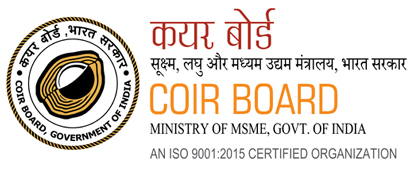|
Coir Board is a statutory body established by the Government of India under a legislation enacted by the Parliament namely Coir Industry Act 1953 (45 of 1953) for the promotion and development of Coir Industry as well as export market of coir and coir products in India as a whole.
Section (4) of the Coir Industry Act 1953 empowers Central Government to constitute Coir Board. The Sub Rule 4 of the Coir Industry Rules, 1954 provides the number of persons to be appointed as members of the Board. |
|
The relevant section of the Act is as follows:
|
